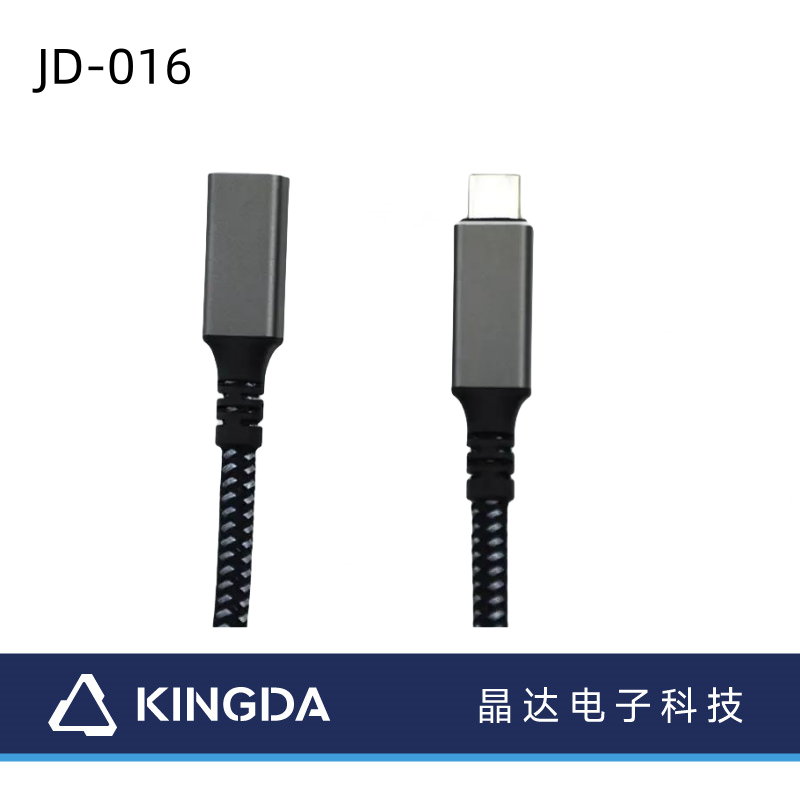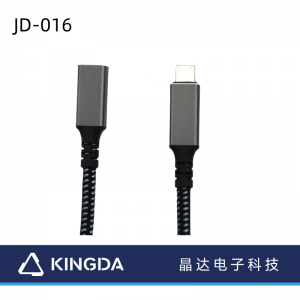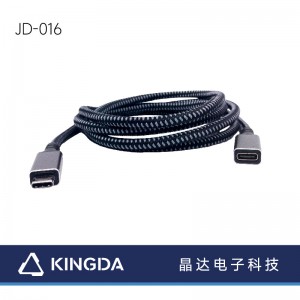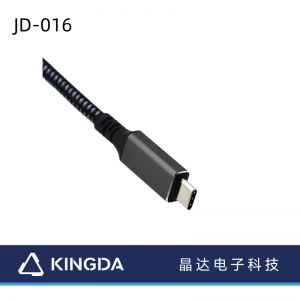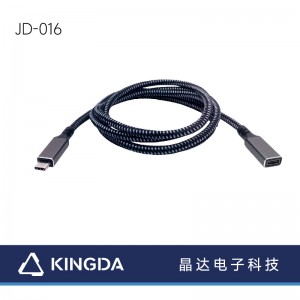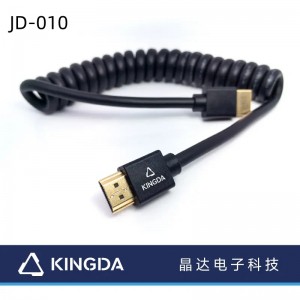USB3.1 C Male To Female Usb Male Vnew Best Seller USB3.1 Gen2 60W 3A Type C Male To Female Usb Cable
Applications:
The Ultra Supper High speed Type-C Male to Female cable widely used in MP3 / MP4 Player, Video Game Player, Camera, Mobile Phone, COMPUTER, Other, Multimedia, Printer, Barcode Scanner, Scanner, Car, IOS, Tablet, Power Bank, Multifunction, Smart Watch
● 10Gbps Data Transfer
USB C to USB C Cable supports data transfer rates up to 10Gbps, 20x faster than USB 2.0 Type C cable, only a few seconds with an
HD movie. And large files will be finished in seconds. Note: The actual data transfer denpens on the size and type of files.
● 100W Power Delivery
With E-marker chip inside, this USB C to USB C cable offers rapid charge up to 20V/5A (max). Your new 87W 15” MacBook Pro at full speed. Besides, it supports Quick charge QC 3.0 and PD rapid charging (with PD charger).
● 4K@60Hz Video Output
This USB4 Type C Gen 2 cable offers 5K@60Hz video output function from USB C laptops to USB C display or monitor, which is easy for you to enjoy watching TV shows, streaming videos and movies to a lager screen! Ideal accessories for your USB C devices for work, home use, business trip and more. NOTE: Both of the laptop and monitor should support 5K resolution.
● Wide Comaptiblity
Compatible with Oculus Quest, MacBook Pro Google Pixel 4
Product Detail Specifications
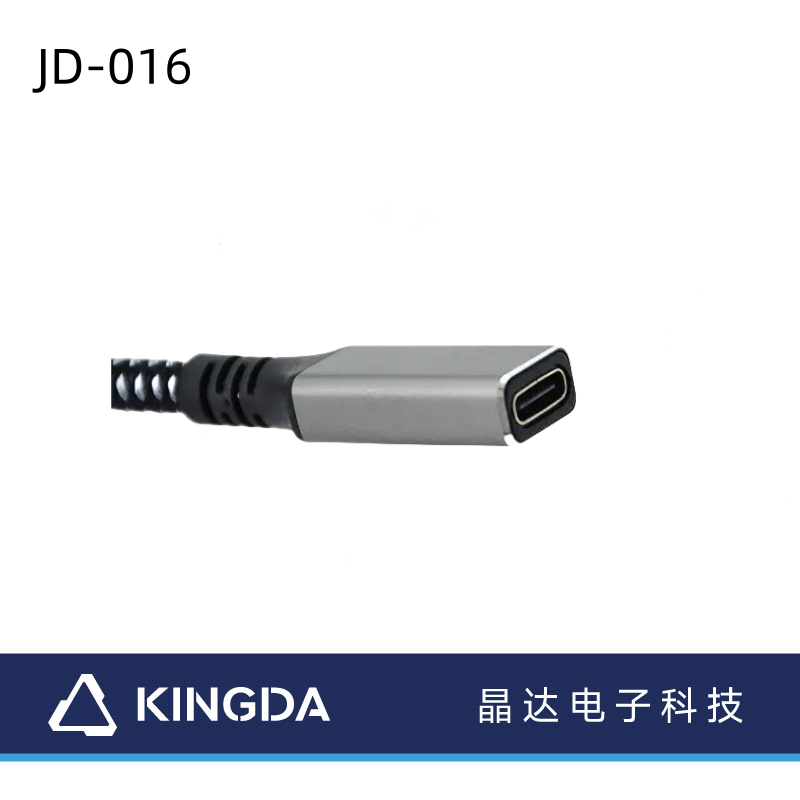
Physical CharacteristicsCable
Length: 1M/2M /3M
Color: Slive
Connector Style: Straight
Product Weight:
Wire Diameter:5.0millimeter
Packaging InformationPackage
Quantity: 1Shipping (Package)
Weight:
Product Description
Connector(s)
Connector A:USB C USB3.1 Male
Connector B: USB C USB3.1 Female
USB3.1 GEN2 10Gbps Type c Male To Female extension cable, Metal Case
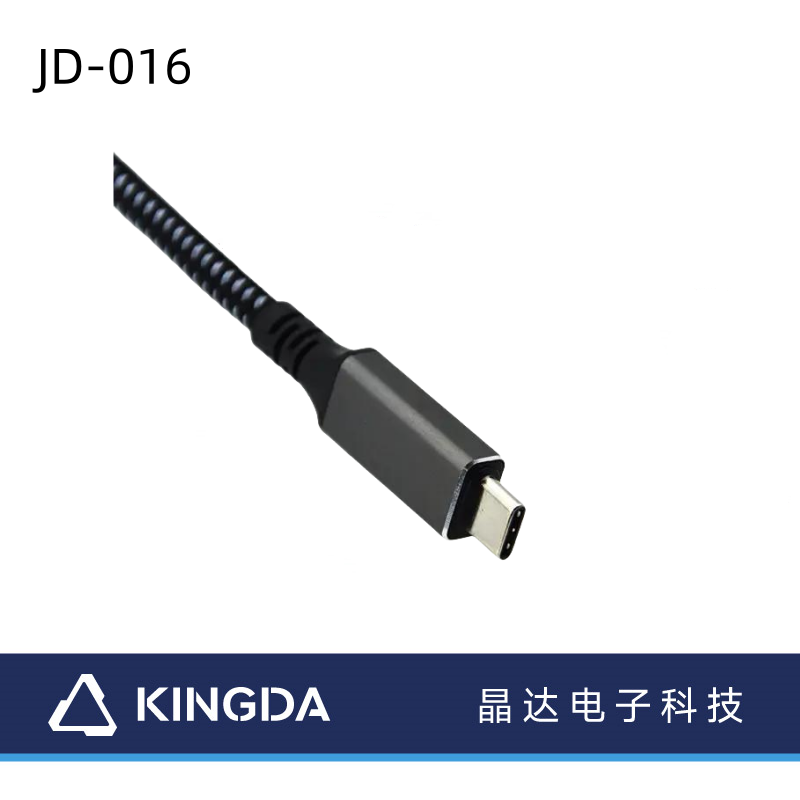
Specifications
1.High Resolution: support 4K 60Hz displays for single, and 4K for two screens simultaneously.
2. High-speed Transfer: Max 20Gbps Data Transfer speed.
3. 100W/5A Charging: USB3.1 C Male to Female cable can deliver power in both directions, up to 100W (5A/ 20V) of power delivery.
4. Hi-Range Compatibility: support with all USB-C devices,and compatible with USB 2.0, 3.0, 3.1, 3.2 cable.
5. Bend Technology: More than 10,000+ Bend Lifespan ensures extended longevity.
6. All materials with RoHS complaint
| Electrical | |
| Quality Control system | Operation according to regulation & rules in ISO9001 |
| Voltage | DC300V |
| Insulation Resistance | 2M min |
| Contact Resistance | 5 ohm max |
| Working Temperature | -25C—80C |
| Data transfer rate | 4K@60HZ |
How do the USB Type-C and the USB 3.1 differentiate themselves?
USB-C and USB 3.1 often appear together, but in fact USB-C is not the same as USB 3.1. USB 3.1 is an industry standard that was initiated by big companies such as Intel. USB 3.1 is characterized by extremely rapid data transmission and a theoretical speed of 10Gbps. The USB Type-C is a connector specification that consists of a Type-C plug and a Type-C socket. Among the USB 3.1 standard near Z, there are three interface styles, one is Type-A (Standard-A, the USB interface style common to Z on traditional computers), one is Type-B (both Micro-B, currently used by mainstream Android smartphones), and one is Type-C (the new design interface style mentioned above). Then we should be very easy to understand. While USB Type-C is designed based on USB 3.1, this does not mean that devices with this connection are necessarily USB 3.1 compliant; contrary to what we think, USB 3.1 is compliant for older USB 3.0 Type-A interface devices. So why do some devices use incompatible USB 3.1-compliant USB Type-C interfaces? What’s the point of doing this? Yes, just for the convenience of the —— because of the USB-C interface and Apple’s Lightning interface, there is no pros and cons, directly inserted in the right, comfortable enough happy. It is also worth mentioning that each generation of USB standard updates in addition to the acceleration of data transmission speed will also have the expansion of the enhancement, current transmission speed acceleration and other internal technology updates. Since the USB standard of Z does not have the power supply capacity, the power power power of USB 1.0 and 2.0 is only 2.5w(0.5A/5v). That’s enough to power small electronic devices, such as mobile phones, but it’s clearly not enough for mobile hard drives. And even for charging the phone, 2.5w is not so abundant for now. USB 3.0 supplies up to 4.5w(0.9a/5v). The USB-Type C 1.1 specification also has its own power supply operation mode, under which the USB-Type C interface can be used for quick charging. As part of the power supply standard, the new power management system introduces the level of power supply required to adopt the new two-way data channel. This is to ensure compatibility with traditional equipment and to reduce equipment damage resulting from non-compliant data lines. The main difference between the USB 3.0 and the 3.1 is that the 3.1 supports up to twice the peak data transmission rate of the 3.0 level. Most devices are likely to jump straight to 3.1, and the task of developers is to make sure that their devices can support both of the new standards, while ensuring that

